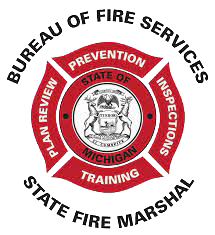- Orientation will be scheduled for some time in October, so if you know of individuals interested in becoming part of MI-TF1, please encourage them to apply now!
- The dates for the 2026 Operational Exercise have been set. Please go to D4H and sign up for one of the two options: May 19/20 or May 20/21.
- Please make sure to use the ‘off-call’ function of D4H. To change your status, login to D4H and click on the ‘+Add off-call’ button in the upper right corner. Enter your details and you’re good to go!
- Remember that all sections have attendance requirements so it’s important that everyone attend at least the minimum number of trainings for their areas of specialties each year.
![]()





Operational Challenges – Determining the number of missing individuals proved challenging due to the numerous campgrounds along the river, which had been populated by holiday vacationers, as well as several children’s camps that were destroyed. Per operational guidance, photographs of the most severely affected areas – particularly the children’s camp – were prohibited.
The extreme heat presented a significant challenge to both handlers and canines. Team members were diligent in maintaining proper hydration and nutrition and in carefully managing canine work-rest cycles to preserve effectiveness. The dogs adapted quickly, self-regulating their activity levels and entering the river when possible to cool themselves.
In addition to the heat, because this work was essentially wide-area involving fast-moving water, large areas of wilderness, brush and debris as well as the river/riverbank, there was also concern regarding naturally occurring wildlife such as snakes (several types of which were poisonous; local authorities had anti-venom readily available), fire ants and other insects. Even though they were hot, gaiters were a necessity.
An interesting matter came up with the ‘novel odors’ for the dogs. Disaster canines are trained mainly for disaster environments which means lots of food and human scents in the area. The search sections involved in this response had many naturally occurring odors – wild animals (both alive and dead), animal scat, dead fish and other water creatures, etc.


Canine Care and Support – The Texas A&M Veterinary Emergency Team (TEEX) established a field station at the high school in Comfort, Texas, a community that was also affected by the flooding. Throughout the deployment, canine teams had access to comprehensive veterinary services, including medical evaluations, treatment, and decontamination facilities. These resources were critical in maintaining the health, safety, and operational readiness of the dogs under challenging environmental conditions.
We extend our deepest sympathies to the individuals and communities impacted by this disaster and acknowledge the resilience demonstrated as they undertake the difficult process of recovery and rebuilding.
![]()
The temperature prediction is for above normal from Maine all the way down the east coast, through the gulf coast and into the southwest. The southern one-quarter of the country is expected to have below normal precipitation.
The Farmers’ Almanac is predicting a cold and snowy winter for Michigan.
It is possible additional Connect Rocket notifications could go out. Anything other than an actual deployment will be clearly identified as ‘EXERCISE’.
Thank you everyone.
https://www.mitf1.org/
Contact Joe Chopski at [email protected] for assistance!
Have you joined MI-TF1 private Facebook group yet? If not, contact Rayanne at [email protected] to be added!





